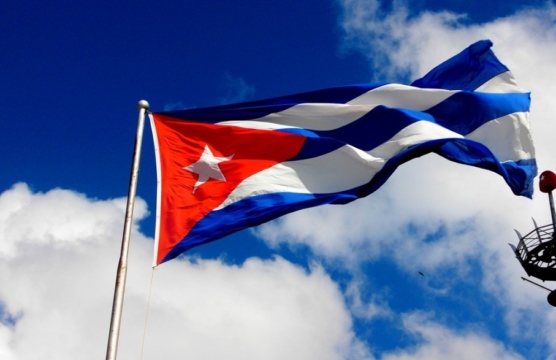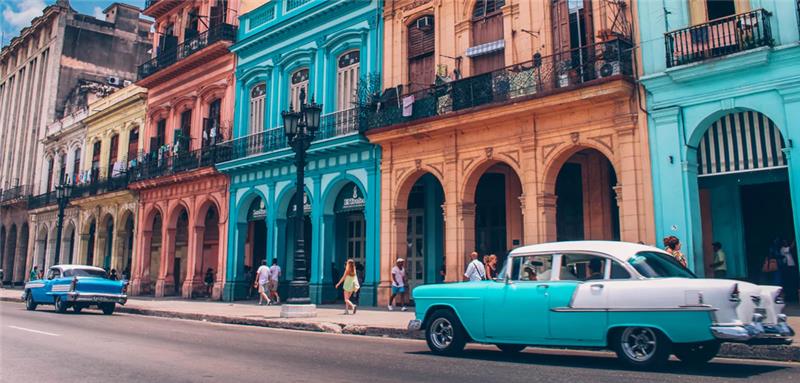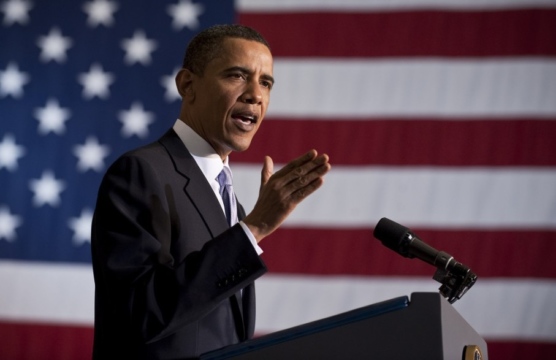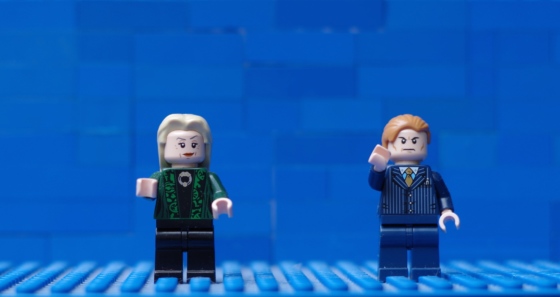
Bad Habits Can Derail Negotiations in Cuba
Fidel Castro, or at least the message released in his name, tepidly endorsed the decision to normalize relations between the US and Cuba.
A Daily Publication of The Dialogue
Cuban President Miguel Díaz-Canel on Nov. 8 recognized Joe Biden as U.S. president-elect, a day after U.S. news organizations called the race for the former vice president. In a tweet, Díaz-Canel expressed hope for “constructive bilateral relations respecting one another’s differences.” Cuban-Americans in Florida strongly supported President Donald Trump in the election, swinging the state in his favor. What policies relating to Cuba could be expected from a Biden administration? How much would Biden be likely to roll back Trump-era policies through executive orders, and to what degree will the Florida vote temper his ambitions with Cuba? What kinds of policies might the new U.S. Congress keep or change relating to Cuba?
Lenier González, resident fellow at the Inter-American Dialogue and cofounder of Cuba Posible: “With respect to Cuba, the Biden administration will experience a double tension: on the one hand, it will feel the responsibility of dismantling the more than 130 measures applied by the Trump administration, which have harshly punished the Cuban people, and which literally destroyed the powerful political influence that Barack Obama built inside the island. But, on the other hand, Biden will be very aware of the frustration caused by the Cuban government’s rejection of Obama’s effort at normalizing relations. However, despite the defensive attitude that the Cuban government has assumed since 2016, this type of bilateral relationship continues to be the most plausible path for relations between the two countries. It is in the hands of the Cuban government to defuse this tension by implementing an agenda of economic, political and social transformations that cannot be postponed. These changes should be centered on the expansion of human rights for Cubans inside and outside the island. The Cuban government should not wait to insert these internal changes into a potential negotiating agenda with the United States, but it should instead implement them as part of a sovereign decision. For its part, the Biden administration could take steps to enhance U.S. presence on the island. The lifting of sanctions, the reopening of the embassy in Havana and the dispatch of a diplomatic team to rebuild bridges of dialogue with officials, with civil society, with the political opposition and with the Cuban people in general will be critical. However, given the array of forces that emanated from the last presidential election, I unfortunately do not believe that the conditions have been created for the U.S. Congress to lift the embargo.”
Anya Landau French, consultant at Akin Gump: “Advisors to President-elect Biden have already indicated that Trump administration policies limiting Cuban-American family travel and remittances to the island will be reversed. We can also expect the Biden administration to review policies that had an adverse impact on Cuba’s budding private entrepreneur sector as well as on U.S. businesses that engaged in efforts with the support of the Obama-Biden administration. As such, we could expect an executive order that reverses most or all of the Trump administration’s Cuba policy and associated regulations, not least because doing so would return to policies rolled out during the Obama-Biden administration, and because doing so could in theory require a less lengthy review period the second time around. Still, moving beyond the Obama era detente could take time, given the number and gravity of issues Biden hopes to tackle after his inauguration. It may be that further innovations will first percolate in Congress, where bipartisan working groups and delegations to the island have often spurred efforts to ease travel and trade restrictions that benefit both Americans and Cubans. The Biden campaign is no doubt scrutinizing its margin of loss among Cuban-American voters in Miami-Dade County. For decades, Cuban-American voters were thought to be single-issue Republican voters focused only on ousting Fidel Castro. In 2008, President Obama managed to marginally improve his performance among these voters while promising to reverse restrictions on family travel and remittances. In 2020, analysts have suggested that Republican efforts to paint U.S. Democrats as ‘socialists’ likely resonated with this group of voters. At the same time, that doesn’t mean that they prefer to remain isolated from friends and family on the island, as evidenced by the large numbers of Cuban-American visits to the island prior to the pandemic and to the Trump administration’s tightening of restrictions. Moreover, it’s possible that the Biden-Harris team will not be so singularly focused on winning over this set of voters in South Florida as was President Trump and may instead focus on delivering to larger constituencies around the country.”
Jaime Suchlicki, director of the Cuban Studies Institute: “In an interview during the presidential campaign, Joe Biden was asked about his Cuba policy if elected president. He responded that he would follow the Obama policy. Did Mr. Biden mean that he would offer Gen. Raúl Castro more unilateral concessions with little or nothing in return? The Obama policies failed to secure any change regarding respect for human rights on the island, the return of confiscated properties, the reduction of military presence in Venezuela, the return of terrorists hiding in Cuba or moderation of Cuba’s anti-U.S. policies. The continuation of the disastrous Obama Cuba policies will only prolong the agony of the Cuban people and delay a return to a more humane regime in Cuba. How about a policy of more tourism and humanitarian aid in exchange for more freedom and respect for human rights? Or perhaps it would be best to reserve any initiatives for after Gen. Raúl Castro (who is now 89) in no longer in the picture. At a time of transition in Cuba, U.S. policy and initiatives could be effective. Historically, unilateral concessions toward totalitarian regimes have failed to achieve U.S. objectives. Adversaries pocket the concessions and ask for more. Only a no-nonsense policy of quid pro quo will achieve, at least, partial objectives in Cuba. The reality of a hardline entrenched military Marxist regime in the island and in Venezuela represent real challenges to the new Biden administration. ‘Making nice’ will not change that reality.”
Kirby Jones, former president of Alamar Associates: “If you ask any Cuban-American to answer the following: do you want to send money to your relatives? Do you want to freely visit your family and friends? Do you want to visit Granny and grandchildren? Do you want to cruise to Cuba? Do you want a better life for you and your family still in Cuba? The answer of course would be yes to all. With Trump the answer is no to all. With Biden, the answer is expected to be yes to all. As far as the label of socialism, that was a lie created to win the election and win the votes of many exiles from Cuba and Venezuela. Joe Biden never was or will be a socialist. Now we all can get back to reality. More important is what could lie ahead under Biden. First, the far-right-wing fanatics will not be driving policy toward Cuba in a Biden administration. We can expect, at the least, a return to the Obama policies, as Biden has already indicated. But there could be more ahead. Biden could unilaterally use his almost unlimited licensing power to open trade, increase travel and promote investment by U.S. companies, all without Congress. It is through such licensing authority that Cuban-Americans were first allowed to visit Cuba and U.S. hotel companies were allowed to enter the hospitality sector in Cuba. If U.S. companies can sell food to Cuba under a law passed by Congress, so too could other companies help grow food in Cuba under a general license granted by Biden. And this is just one of many sectors that could be opened to U.S. companies and organizations. We can expect little action from Congress because there are so many other problems that need attention. After more than 60 years of policy failure, a cadre of new policymakers could look ahead with a different point of view from that of the far-right and not accept that the embargo needs to be part of U.S. policy just because it always has been.”
 The Latin America Advisor features Q&A from leaders in politics, economics, and finance every business day. It is available to members of the Dialogue’s Corporate Program and others by subscription.
The Latin America Advisor features Q&A from leaders in politics, economics, and finance every business day. It is available to members of the Dialogue’s Corporate Program and others by subscription.
Fidel Castro, or at least the message released in his name, tepidly endorsed the decision to normalize relations between the US and Cuba.
At the Summit of the Americas, Obama will have the opportunity to show off the historic changes in US policy toward Latin America.
Presidente emérito do Inter-American Dialogue, Peter Hakim diz que maioria republicana sabe que Hillary é provável vencedora.
 File Photo: Augustin de Montesquiou via Unsplash.com
File Photo: Augustin de Montesquiou via Unsplash.com

